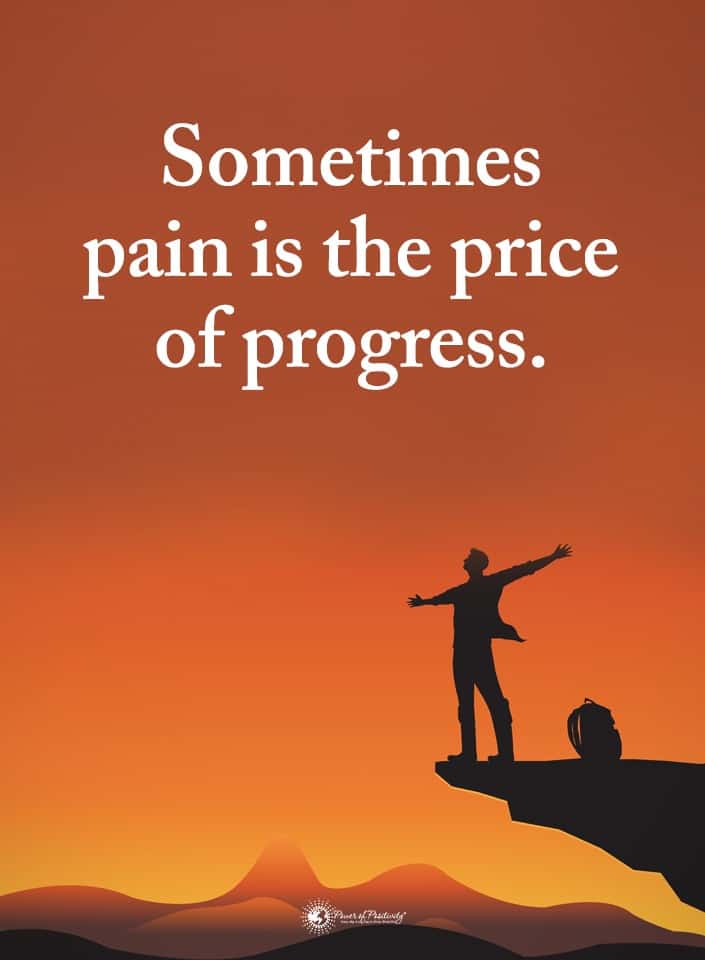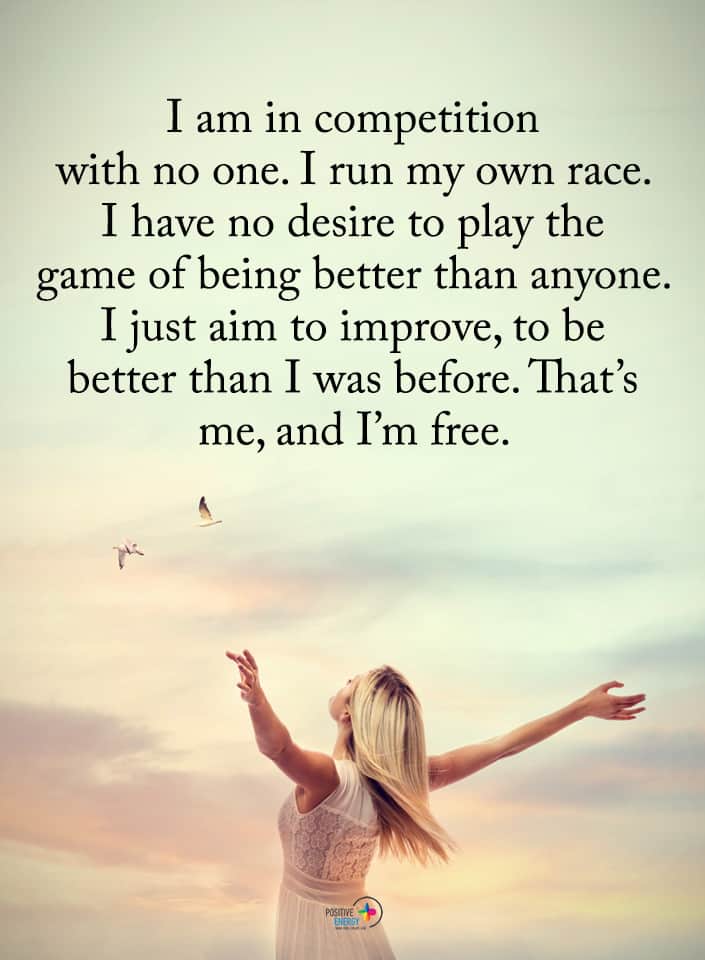Our society sometimes encourages a competitive spirit among individuals seeking success, and for a good reason. It allows you to rise to new challenges, learn from the people you compete with, and better yourself as you keep up with your rivals in new and exciting ways.
But not all competition is good, and sometimes, fiery competitiveness can even be detrimental for you, others, and your progress. Here are five times when being competitive can be a bad thing.
1. You Feel Motivated By The Wrong Things
Competition can be motivated by many different factors, but for it to be healthy, it has to be fueled by the right things. Here are some harmful forms of competitive motivation:
· Jealousy Or Envy
The green-eyed monster is powerful and often feels all-consuming. When you’re motivated to be competitive due to your envy of others, you’ll often wind up making selfish decisions that can harm those around you – and even yourself, in the long run. Stop placing your focus on envy. Instead, focus on things you find inspiring.
· Obsession
Obsession is such an extreme state of mind that it is always, regardless of the situation, very unhealthy – and that includes during competitive urges.
· A Desire To Win
Winning at all costs is a constant motivational factor for competition, and it works in direct, intentional, organized contests. As hyper-competitiveness, it’s one of the four faces of competition, with the other three being lack of interest, anxiety-driven avoidant, and, of course, the one you should aspire to be: self-developmental.
· Ego
Some people attach their egos to success. This means your pride and self-worth will be dictated by how well you do, causing you to become toxic in your competitiveness. Failure is a part of life and is no indicator of worth.
· Fear
Fear of scarcity is a widespread issue among those who are overly competitive in the wrong ways. The concept that you have to fight for your piece of the proverbial pie is often an unhealthy one, as real-life doesn’t have to be greedy chaos.
· Status
Did you know that a study found that people have more positive responses to perceived social ranking, even if they claim otherwise? Even those who think they put more stock in mastery and personal progress respond better to social praise. Status isn’t an unreasonable thing to strive for, but it shouldn’t be the primary fuel to your competitive fire.
· Compromised Values
For some people, their desire to be competitive runs so strongly that they simply do so for the sake of competition, even when it goes against their core beliefs and values. When you’re competing, you should have a substantial reason for it, and you shouldn’t forget your goals and dreams in the process.
2. When It’s Not All About You
Competition only works well in solo efforts, or on a very subdued level in group efforts (though that still usually isn’t recommended). When you’re working on something with others, then being competitive is more of a hamper than a help, because in this situation, it’s not about you and you shouldn’t be focusing on yourself. Here are some signs that you tend not to play by those non-selfish rules:
· You Think You Cannot Share Your Success
All competitions are win-lose types of situations. In other words, the desire to succeed alone means a loss for everyone else – and when you eventually aren’t the “winner,” you’ll wind up the loser. Indeed, you can share success among different people. Start to see–plenty of situations have win-win possibilities in them.
· You Value Your Performance Over Teamwork
In a lot of real-life situations, you’ll be working with, not against, your peers. At work, you cooperate with your colleagues. In classes, you progress together. In your personal life, you lift those around you, and they do the same. When your competitiveness starts to mean that you no longer care about teamwork and only think of yourself, you’ve gone too far.
· You Don’t Wish Success On Others
When your competitiveness is more about being the only one to succeed, you’re not just performing illogical and toxic behavior, but you’re also setting an impossible goal. Some people are going to succeed alongside you, and attempts to be the only one ever at the top will likely end in burnout and the failure you fear.
· You Secretly Want Others To Fail
An extremely toxic trait, this type of thinking is sadly common among competitive folk, and it can be tough to stop it once it has a subconscious hold on you. Healthy competition doesn’t involve wishing the worst on others. It means using other people’s success as motivation and inspiration.
· You Don’t Want Others To Get On Your Level
Last-place aversion is a feeling where the closer you are to the bottom, the less you want others to be on the same level as you. Studies have found that people one tier above the lowest positions tend to be the most discouraging towards least position progress, a direct opposite from those in the highest places. This mindset is not at all the right kind of positive thinking; focusing on what’s behind you doesn’t help you move forward.
3. When Your Improvement Is Impeded
If your competitiveness is paying off, then you should be experiencing positive improvement, growing as you are motivated to challenge others and rival them. But when your development is going downhill, something’s off. Here are some signs that your improvement has been impeded by competition:
· When You Can’t Innovate Anymore
Focusing only on “winning” means you do things how you know to get ahead. This situation leaves you with little room for self-improvement and innovation, as you aren’t willing to take risks or voice new ideas due to your focus on being in the first place.
· When It Stops You From Performing Well
An insistence on competition ruins your chances of cooperation, meaning you don’t get the opportunity to learn from your peers and get work done faster and with better quality. That’s not to say you can’t complete your tasks alone relatively well, but your performance can be impeded when you try to be the number one lone wolf.
· When Your Skills No Longer Grow
Breaks are crucial to self-improvement, and being overly competitive can often mean not getting any of those very important breaks. Studies have shown that literally doing nothing and allowing the mind to wander helps the brain’s creativity and productivity.
4. When Your Relationship With Others Is Hurt
Competition is, for the most part, supposed to be friendly. It’s not supposed to have a negative effect on your relationships with others at all, and if it does, that means there’s toxicity leaking out into your social interactions. Here are some “competitive” behaviors that hurt the friendships and partnerships you’ve built:
· Diminishing The Work Of Others
If your competitive spirit is making you scoff at other people’s work and degrade them for not doing as well as you perceive yourself doing, you’re going to lose a lot of friends. You shouldn’t compare yourself to others, whether you’re putting yourself or the other people down.
· Attention-Seeking
If your competitiveness is primarily to gain the favor and attention of others, you can become so self-focused that the people around you start to become almost nonhuman in your eyes. You do everything for their approval or notice, and most of them will suspect this and give you even less attention in turn.
· Only Wanting Validation
Unfortunately, studies have found that individuals tend to value shallow features of competition, such as in regards to attractiveness or praise, as opposed to performance or morality. Basing your competitive thoughts on purely shallow opinions of others is a poor way to live your life.
· Idealizing Other People
You scroll through social media and beat yourself up whenever everyone else shows they’re doing well. You dream of being like these people, forgetting entirely that most people only upload content that shows them in the most favorable light possible to gain attention. These images are unattainable, and everyone has their daily struggles. Whether you idealize someone in real life or online, know that you don’t remember their efforts. Your best bet is to focus on you.
5. When You Feel Terrible Afterwards
Being competitive is supposed to fuel you. If after a streak of competition, you just feel awful – and not only tired but genuinely terrible – then your competitiveness is harming you. Here are some signs that this is happening:
· You Fail to Manage Your Stress Levels
Being competitive in the right amounts can give you the strength to go in frustrating times. But too much competition can just cause you to feel very stressed out all the time, and this frustration is exceptionally unhealthy. Numerous studies indicate various downsides to stress, including decreasing positive thinking overall on top of changing the way the brain functions altogether.
· You Feel Depressed
Being unable to reach your goals and feeling like you can’t keep up with your peers is always an upsetting feeling. But when the competition goes too far, you can be bummed out all the time and lose all positive thinking. Any sign that someone else is closer to your goal can immediately give you the blues, and this is very toxic to your mindset.
· You’re Bitter
Whenever someone else succeeds, you shouldn’t be so invested that resentment fills you and threatens to burst free. There’s no reason to be bitter. Life doesn’t hand out grand prizes – multiple people can achieve similar things if they put in the work and effort.
· You Want To Give Up
If watching other people do well in life is making you want to give up on your own goals, or if your competitive spirit is resulting in unhealthy work-life balance and burning you out, that drive for competition may be ruining your chances of success. Learning from the achievements of others is better than always trying to beat them to it.
Final Thoughts On How Sometimes Being Competitive Can Be A Bad Thing
Being competitive can often be a great thing. But like all other traits, you must not take it to extremes. Knowing when and where you can let your competitive flag fly is crucial in maintaining healthy competition. You may always have your competitive spirit burning. But learn to direct it in the right channels and avenues. Then, it will bring you good results, not bad ones.



















